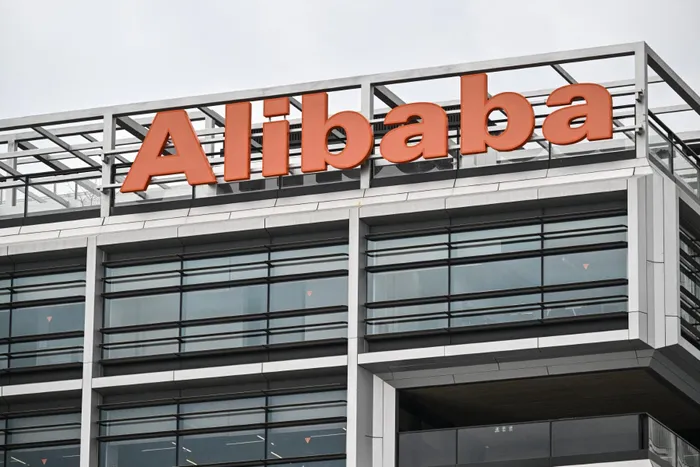Alibaba shows progress in China AI push, lifting shares

An Alibaba sign is see on a building in the Xuhui district in Shanghai.
Image: Hector RETAMAL / AFP
Alibaba Group Holding reported a surge in revenue from China’s AI boom, helping assuage investors nervous about the fallout from a worsening battle with Meituan and JD.com Inc. in internet commerce.
China’s e-commerce leader reported a triple-digit percentage gain in AI-related product revenue as well as a better-than-anticipated 26% jump in sales from the cloud division - the business most closely tied to the post-DeepSeek artificial intelligence boom. Its shares gained more than 6% in pre-market US trading, after investors looked past a disappointing 2% rise in revenue and 3% decline in operating income to 35 billion yuan ($4.9 billion).
Alibaba’s AI wing - considered among the frontrunners in Chinese artificial intelligence development - helped gloss over concerns about an intense price war with JD and Meituan in the giant food delivery sector. That three-way battle has dealt more damage than anticipated to some of the country’s e-commerce leaders: JD’s profit halved in the quarter while Meituan warned of major losses, triggering a $27 billion selloff of the three companies’ shares this week.
The AI element helps explain why Alibaba’s stock has easily outpaced its more commerce-reliant rivals this year. Alibaba has also leveraged the growth of an international arm that encompasses some of the world’s most-recognized online shopping platforms from Lazada to AliExpress.
“I feel like the worst has been avoided,” said John Choi at Daiwa Capital Markets. “Cloud revenue seems to be solid while the losses were not as bad as what the market feared.”
Investors are now focused on whether Alibaba will pursue that margin-eroding competition, at a time it’s declared record amounts of spending toward developing AI services and computing. On Friday, commerce chief Jiang Fan argued that investments in quick commerce - food delivery and instant shopping - had already driven 20% growth in users on its main Taobao marketplace. The fledgling division has in four months grown to the point that it can begin to achieve economies of scale, he added.
“This indicates that Alibaba is not particularly irrational. And of course the cloud services exceeded expectations. So in general, it’s a relief for the market,” said Xiaoyan Wang, an analyst with 86Research in Shanghai.
Meituan dominated the Chinese meal arena for years, relegating Alibaba’s Ele.me to a distant second place. That changed in 2025 when JD.com - pursuing growth during a consumption downturn - offered generous subsidies to cash-strapped diners, forcing Meituan and Alibaba to follow suit. Following a warning from industry regulators in August, it joined its rivals in pledging to cease “disorderly competition.”
Alibaba is simultaneously making substantial investments in the AI sphere, developing large language models to avoid falling behind in a critical technological race. The company views AI as essential to its future, whether in terms of providing cloud computing, powering its core business or coming up with services to challenge OpenAI and DeepSeek.
Just this week, Alibaba updated its own open-source video generating model, part of a string of recent upgrades that span the gamut from agentic AI services to chatbots. On Friday, the Wall Street Journal reported that the company had created a chip capable of operating AI services, potentially competing with Huawei Technologies Co. and Nvidia Corp. at home.
It remains to be seen if Alibaba can turn AI into a money-spinner in an increasingly competitive field. From Baidu Inc. to Tencent Holdings Ltd., Chinese firms are enhancing and releasing AI models at a frenetic pace, increasing the pressure on Alibaba to deliver breakthroughs.
BLOOMBERG